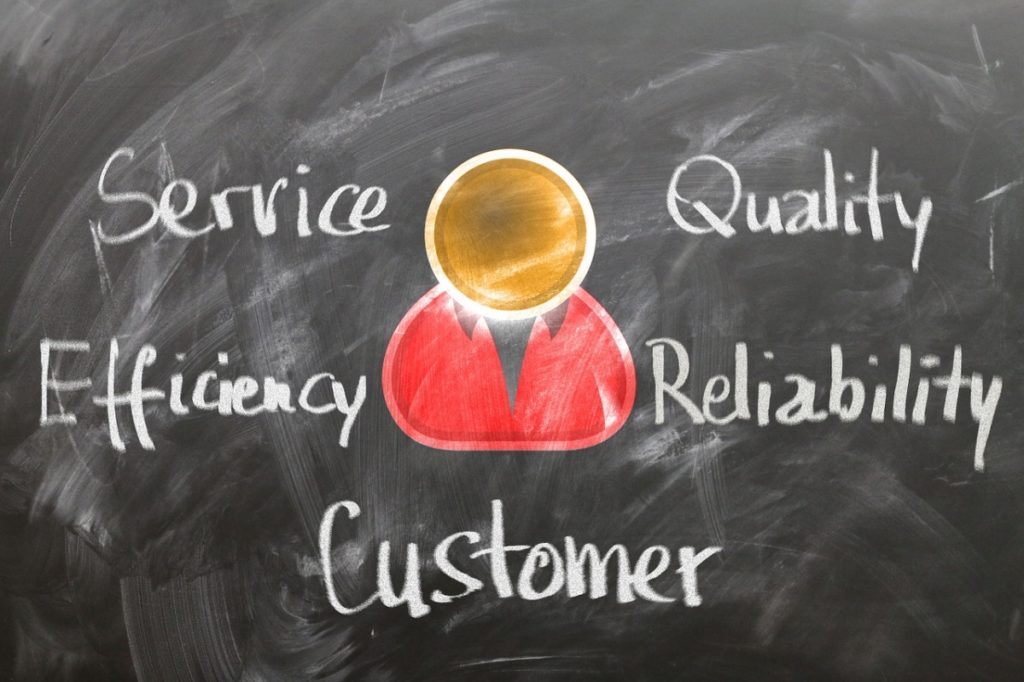7 Excellent Call Center Customer Service Tips

There are several factors that are decisive for customer satisfaction, e.g. price and availability of goods or services, speed of delivery, e-shop layout, complaints procedure or the attitude of call center agents. If you are a call center agent and your client is still unsatisfied or even angry after the call, it’s partially your fault. In this post, you will read about tips that will help you avoid customer dissatisfaction.
#1 Don’t underestimate consistency
Maintain a constant level of your services, including customer support. The quality of customer interactions, helpfulness and general approach towards clients’ problems should never depend on the agent’s mood. Set a high quality standard for your customer service and maintain it even when you’re having a bad day or when the day is busier than usual.
Learn How To Provide Excellent Customer Service
#2 For each call, follow these simple rules that will help you improve customer satisfaction:
- Answer all inbound calls within three rings. Greet the caller, identify yourself and your company. Customers sometimes make mistakes and reach the wrong business. Instead of quietly waiting for the customer to speak, ask them how you can help them. Say, for example: “Good afternoon, you have reached Phones Limited, Ann Johnson speaking. How can I help you?” If you have caller information at your disposal before answering the call in the real-time customer card, address the caller by their name: “Hello Barbara, this is Andrea Jolly from the Perfumes World. How can I help you?”
- During the call, don’t interrupt the caller and listen carefully to what they are saying. If it’s necessary to solve the client’s problem, make notes. Customers should never feel like they don’t matter to you, just the opposite – interact with each client with self-confidence, respect and empathy.
- If you need to put a customer on hold while you search for information or ask a colleague for advice, tell the client before you do so. Explain why and for how long they will be put on hold and once you return to the call, thank them for their patience.
- If you need to transfer the customer’s call to another agent, explain why and to whom they will be transferred. Make sure that the agent to whom the call is being transferred knows the caller’s name and the purpose of the call and that they pick up the call before you hang up.
- At the end of the call, make a brief summary of the follow-up steps you’re going to take, ask the caller whether there’s anything else you can help them with and thank them for calling.
#3 Be professional
- When you’re unable to answer the caller’s question or help them with their issue, never apologize by saying that you’re “new here”. This is irrelevant and of no use to the client. If you really don’t know what to do, ask a more experienced colleague for help or transfer the call to them. Find out what you should have done or said and remember it the next time when a client calls with a similar problem so that you don’t have to ask for help again.
- Analyze more complicated calls and don’t be scared to seek advice from colleagues or your boss. This will show them that you’re proactive and willing to work on your performance.
- During the call, make notes that you can easily enter or copy to the call log once the call is over.
#4 During the call
- Don’t forget to stick to call etiquette.
- Don’t lose control over the call, be polite and patient.
- Keep a positive approach towards the customer and the solution of their problems.
- Use a natural tone of voice.
- Show empathy and try to create an emotional bond with the caller. Make sure that they feel important to you and see that you really care about solving their issue.
- Ask additional questions that will help you find out what the problem is and find the solution more quickly. Clients who say that “the Internet connection is not working” might actually have an issue with their laptop.
#5 Know your products and services
Clients contact call centers when they have a problem they can’t solve by themselves or when they can’t google a solution. They need you to help them. Maybe they need to know why the light on their new robotic vacuum cleaner is always red or which one of your hotels serves gluten-free dishes. You are the one who should give them the answer.
#6 Have a customer database and learn how to make maximum use of it
A comprehensive database is priceless. Apart from basic customer information (name, contact data, age…), a good database also includes customer communications history, tickets and notes, which will make your customer interactions more personalized and increase customer satisfaction.
#7 Be reachable
If a customer wants to get in touch, make it easy for them. Don’t rely on automated messages, although they can be useful when you need to inform customers on the payment of their invoice or that there is a TV signal blackout in their region. However, an automated message cannot deal with incomplete delivery and it cannot explain the difference between Internet Classic and Internet Extra.
No matter whether you sell holiday packages, electronics or assistance services – make sure that you do everything to make the caller satisfied.
More than half of customers would be willing to pay more for a better customer experience.
















